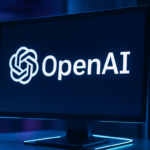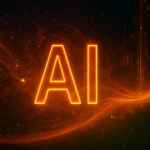A significant financial commitment has been made by SpaceX towards the development of artificial intelligence, with $2 billion channeled into Elon Musk’s AI initiative, xAI. This endeavor signals a major stake as xAI positions itself as a competitive player in the AI industry. The investment, approximately half of xAI’s recent equity acquisition, positions SpaceX as a key contributor to the AI startup’s ambitious goals. As Musk diverts considerable resources from his other ventures into xAI, the implications for both his tech conglomerates and the broader AI sector are notable.
Elon Musk’s businesses frequently integrate across industries, a trend evident from past interconnected ventures. SpaceX’s involvement with xAI reiterates Musk’s strategy of leveraging strengths from various technological fields. Previously, both companies focused on space technology innovations; today, Musk’s emphasis has shifted to encompass AI development. This shift mirrors earlier ventures, such as Tesla (NASDAQ:TSLA)’s AI initiatives for autonomous driving, suggesting a pattern in Musk’s approach to integrating AI across sectors.
Why is SpaceX investing in xAI?
SpaceX’s decision to funnel $2 billion into xAI reflects Musk’s belief in AI’s potential and its strategic alignment with his broader technological objectives. Elevating xAI’s offerings by joining forces with social media platform X, the merged entity is poised at a $113 billion valuation. Musk has taken proactive steps in training the Grok chatbot, a core element of xAI, which he describes as possessing exceptional intelligence. He voices apprehension about its potential misalignment with human values, highlighting the importance of shaping such technologies responsibly.
How could this impact SpaceX and its projects?
The financial redirection might open SpaceX to potential risks, especially when resources could be scarce amidst ongoing projects like the Starship rocket, which has faced some setbacks including recent test failures. Nonetheless, SpaceX’s revenue growth provides a cushion, facilitating high-stake investments like those in xAI. Questions linger regarding how this concentration of resources might influence future space endeavors, awaiting insight as SpaceX balances its dual focus.
“The shift in the past year reflects growing hands-on use and a rising urgency to close capability gaps,” a report finds, emphasizing the demand for a workforce with evolved analytical talents to adapt to these changes.
Amid these developments, businesses recognize a parallel necessity: equipping employees with AI-adaptive skills. A notable increase in employers seeking AI expertise among CFOs underscores this ongoing transformation. The move towards incorporating AI into business functions mirrors a similar rise in expectations within leadership roles, driving a substantial evolution in job profiles and market requirements.
While Musk’s expansion into AI faces challenges, notably the ethical dimensions attached to advanced tech, most stakeholders agree on its prospective benefits. Recent surveys highlight significant interest and investment in developing personnel proficient in AI-enabled environments. Such proactive measures exhibit the continuous evolution of workplaces as AI reshapes expectations and operations.
Elon Musk remains prominent in steering future technological integrations with investments like these, which, while risky, propose substantial gains if guided by thoughtful oversight. As AI interlaces deeper into business, the scope for growth, tempered with cautionary governance, illustrates an intriguing narrative for stakeholders to observe closely as these initiatives unfold.










